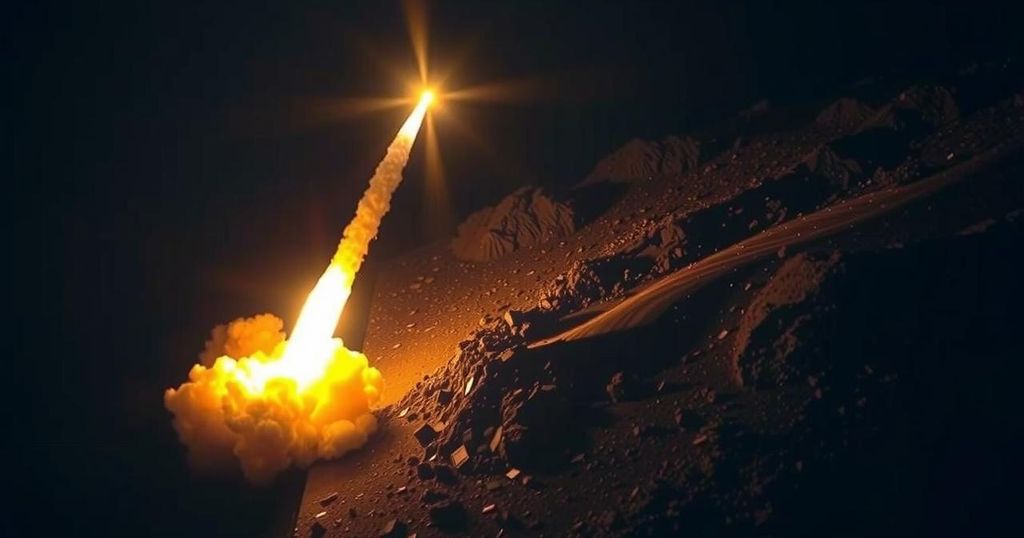Iran has issued veiled threats following Israeli airstrikes that killed two soldiers, as Hezbollah launched rockets at Israeli positions in southern Lebanon. Despite tough rhetoric, Iran has not yet retaliated. The Israeli Air Force targeted key military infrastructure in Iran, sparking concerns of escalating violence in the region and prompting calls for restraint from the United States and other nations.
Following a series of Israeli airstrikes that resulted in the deaths of two Iranian soldiers, Iran has indicated its willingness to respond, although an immediate counteraction has yet to materialize. The Iranian Foreign Ministry stated, “Iran has the right and duty to defend itself against foreign acts of aggression,” hinting at potential repercussions without detailing explicit plans. Concurrently, Hezbollah has intensified its military activities by launching a barrage of rockets targeting Israeli positions in southern Lebanon. These developments unfolded after Israeli forces targeted strategic military installations in Iran, including facilities associated with drone and missile production that had been involved in prior attacks against Israel. Reports from credible sources highlighted that among the targets was a Russian-manufactured S-300 air defense system located at Imam Khomeini International Airport. In response to the Israeli strikes, which the Israel Defense Forces described as necessary measures against persistent assaults from Iran, there have been claims from Iranian state media that their air defenses effectively thwarted the attacks, although two soldier fatalities were confirmed. The U.S. administration dissociated itself from the airstrikes, urging Iran to cease its belligerent actions towards Israel, while various regimes across the Middle East expressed serious concerns over the potential for escalating violence due to these provocations. Meanwhile, Hezbollah’s activities included the firing of approximately 80 rockets into northern Israel and drone assaults on an Israeli air base near Tel Aviv. The current trajectory of these hostilities poses significant risks of further escalation in an already volatile region, highlighting the intricate interdependencies of international relations in the Middle East.
The tension between Israel and Iran has escalated substantially over the past few months, characterized by a series of retaliatory attacks and military strikes. Recently, the Iranian regime has intensified its operations against Israeli targets, prompting defensive responses from Israel. The backdrop includes Iran’s development and deployment of drone and missile technologies, which have been used in aggressive operations against Israel. This cycle of violence has drawn responses not only from involved nations but also from regional powers, all of whom are concerned about the ramifications of an armed conflict in the Middle East.
In conclusion, the recent military exchanges between Israeli and Iranian forces underscore the heightened tensions and the potential for conflict escalation within the region. Both nations appear poised for continued hostilities, with Iran asserting its right to respond and Hezbollah actively engaging in military actions against Israeli targets. The international community, particularly the United States, has expressed concerns regarding these developments, emphasizing the need for de-escalation to prevent further turmoil.
Original Source: nypost.com






